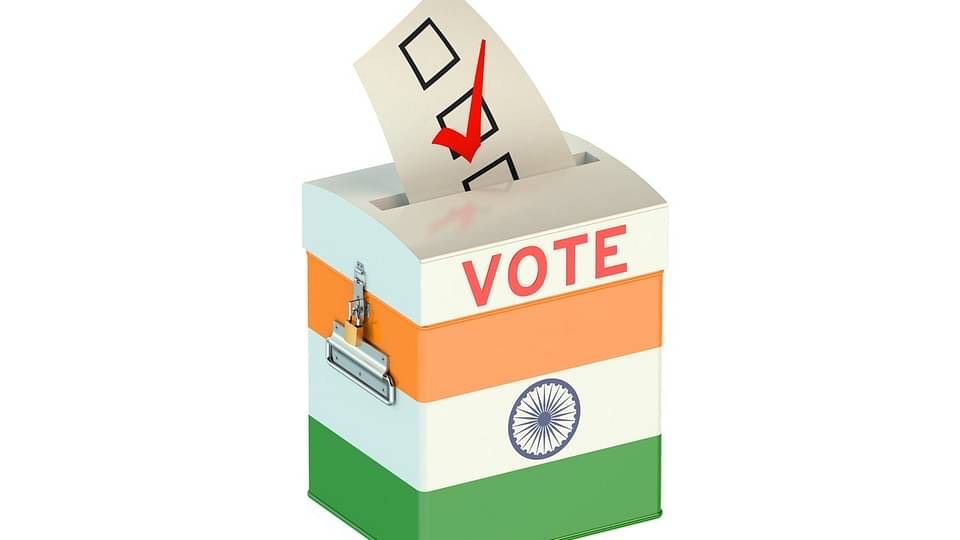MARKET PERSPECTIVE
By J Miulraj
June 1-7, 2024
Challenges for Modi’s third term in a technologically disruptive world
Vox populi, Vox dei is a Latin phrase meaning the voice of the people is the voice of the Gods. The people gave the ruling BJP less than a majority of the seats, thereby requiring the assistance of allies to be able to form a Government for the third term. The BJP ended up with 240 seats, (down 63), less than the half way mark of 272, but, together with alliance partners, got 293 seats, enough to form a Government though decidedly lower than the 400 they had expected. With the help of allies like Chandrababu Naidu and Nitish Kumar, it formed the Government. In its favor, though, the BJP itself secured more seats than the entire opposition, combined.
Both allies, in a stronger negotiating position, have demanded their pound of flesh for giving support, and will surely get cabinet berths and, likely, special concessions for their states. Unlike in the Shakespearian classic, The Merchant of Venice, Mr Modi couldn’t find a Portia to avert giving the (financial/ministerial) pound of flesh, which may even be close to its heart (like the post of Speaker of the House).
Investors, both domestic and foreign institutional investors, were happy at the stability in policy expected from the ruling coalition’s third term, and managed to recover a good chunk of the fall on June 4, when election results were being declared and realization of BJP’s poorer than expected performance became clear.
What now?
Running a coalition Government needing ally support, will probably make more difficult some reforms, such as the stated desire to have a single election for State as well as Central Governments. From the point of view of usage of Government manpower, as well as man days lost (election dates are holidays) it makes sense. In each election, Government employees are pulled out of their daily routine, to be on electoral duty, creating a backlog in official work. The fewer there are, the more productive would be the economy. The working population of India is estimated at 470 m. So a day’s extra holiday for state elections translates to a loss of 470 m. mandays! Can India afford this?
A significant chunk of the 63 seats lost by BJP was from UP, India’s largest state contributing the most seats. Several reasons are being touted to explain this, but it seems the main reason was the belief, by voters in the disadvantaged sections of society, that, should BJP form the next Government, the job reservations granted them, would reduce.
So, in a milieu of competitive give-aways, India would find it hard to ‘teach a man to fish, so he could feed himself’ instead of ‘give the man a fish’.
The electoral mandate also makes it tougher to undertake needed agri reform. The BJP tried it, with sensible suggestions, but failed to communicate their thoughts to stirred up farmers. Why should sugar cane, a water guzzling crop, should be planted in arid Maharashtra, is inexplicable, explained perhaps only by the political dynamics.
The coming technological disruptions and changes will be far tougher for a coalition Government to prepare for. These columns had earlier written about the coming (very soon) disruption of the labour market by technologies like robotics and AI. If manufacturing units don’t adapt to the changes they will be driven out of business, becoming globally uncompetitive. But in order to adapt they would need widespread consensus on job losses, and flexible labour policies. The disruptive technologies themselves would create new jobs, with a time lapse, and managing the time lapse would take sagacity, preparation, transparency and good communication. Hopefully the electoral mandate has nudged the Government in this direction. Sadly, it had not been nudged by the farmer protest against bills that were actually giving farmers alternatives to improve earnings.
A coalition Government may also hamper the Government in the geopolitical arena. Mr. Modi has built a formidable standing in the global polity, standing firm when in national interest (such as in accepting discounts offered by Russia for its oil) and gaining international acceptance of it. The geopolitical landscape has grown dangerously murky. The combined West insists on poking the Russian bear in its eye, and then blaming it for resorting to attack to stop the poking. The West gave permission, recently, to the use of its weapons to attack Russian territory. Hitherto its policy was to allow restricted use of these weapons for Ukraine to defend itself. Russia will not take this lying down, and has threatened the Combined West with the dreaded N word! Are the leaders of the collective West so daft as to continue provoking Russia even at the risk of annihilation?
Sadly, yes!
There is no way for investors to hedge against a nuclear war. One that an insipid, brain-dead, vacuous, spineless global polity is driving the world towards.
The continued belligerence of China, in Taiwan and now against India (it has placed its 5th generation stealth fighters dangerously close to our border). The Government will have to balance the need for scarce available resources between competing demands, of the military, of infrastructure, of better education, of more judicial infrastructure, of education/job reservations, of doles and various others. Which is trickier in a coalition of parties with differing agendas.
Not that other countries are doing better; in fact they are, largely, worse off. The US banking sector is on the cusp of another crisis, triggered by a collapse of its Commercial Real Estate (CRE) sector, thanks to work-from-home reducing demand for offices and a 5% hike in interest rates killing the thin margins of small and medium businesses. This will result in defaults to lending banks, mainly community banks (like Silicon Valley Bank) leading to more bank failures.
A bit of relief could come if the US Fed cuts interest rates at its next meeting on June 11-12. June. Interestingly, June 11 is the day when Trump gets sentenced in the New York case. A jail sentence can lead to upheavals on the roads and a no-rate cut Fed meeting could lead to upheavals in the market.
China has its own set of problems, everyone knows about, including its adverse demographics, its high youth unemployment and the problems in its realty sector, about 30% of its GDP. Japan and Germany, too, have their own issues to tackle. Despite all this global Stockmarkets March on, due to enormous global liquidity.
Last week the BSE Sensex ended at 76693 for a weekly gain of 2732 points.
For investors the short term may be bullish, as FIIs (foreign institutional investors) may, now that a stable Government is in place, revert to buying. They had sold before the elections, for seeing uncertainty. Globally, there is a humongous pool of institutional money sloshing around, of which a very tiny percentage has been invested in India. If this Government can show its commitment to economic reforms, can address the weaknesses in primary education and the judiciary, and can start communicating its policy, and the implications of various imminent technological disruptions, more effectively, that, then, would be elixir for the bulls. Let us hope that this will be, will be.
Picture Source: https://www.deccanherald.com/elections/india/lok-sabha-elections-2024-trivia-the-travels-of-mr-ballot-box-2984321
Comments may be sent to Jmulraj@asiaconverge.com










































COMMENTS